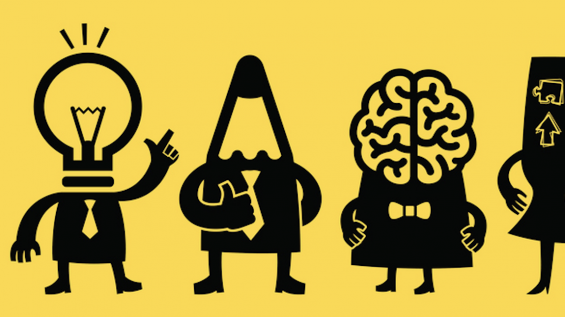
Career advice for new graduates (and really, anyone) from Margaret Heffernan
It’s commencement season in the US, which means that some lucky new graduates are about to start internships and entry-level jobs. How to stand out? Business writer Margaret Heffernan shares this career advice:
Build your social capital. Social capital is one source of power. It can be defined as your influence within a community — both the number of people who will say yes to having coffee with you, and their willingness to exchange valuable information with you over time. “It’s a form of mutual reliance, dependency and trust. It hugely changes what people can do. This is more true now than ever. It’s impossible in modern organizations to know everything that you need to know. What you need are lots of people who know lots of different things. Collectively you’re smarter. Social capital develops from people spending time together. I learned this when I was running my first software company. I hired lots of brilliant people, but felt that there was something wrong. I realized that everybody was so focused on their own work and tasks, that they didn’t know anything about the person sitting next to them. So I decided, “Okay — Friday afternoons at 4 o’clock everybody’s going to get together and three people are going to stand up and tell us who they are and what matters to them.” At the time I thought it was hokey. Even now, this doesn’t feel like elevated management thinking. But it completely changed the game. You need that level of trust to have the freedom to think and to have the really good kind of argument from which the best ideas emerge.” Averse to networking? Watch this TED-Ed Lesson.
Keep creative outlets. “In engineering, people talk about asset integrity, which means that you service the machinery before it breaks. In modern organizations, the work is thinking and the machinery is your brain. We know from cognitive science that there are hard limits to what the brain can deal with. And yet, there’s an awful lot in the way we work which flies in the face of that. We think that if we work through the night, we’re being very clever. We’re not. We think we can work long hours — month after month, year after year — and that there won’t be any wear and tear. But there is. I’m a big fan of mind wandering. I do my best thinking when I’m writing. Or when I stop thinking about a hard problem — how to deal with a client, how to fix a paragraph — and get up. You walk away from your desk, you do something mind-numbingly dull — hanging up the laundry or taking the dog out for a walk — and the idea will come to you.”
“My advice to any young person starting out is: don’t be a sheep. It’s your life and your decisions, and you can’t blame other people if you make the wrong choice. It’s your choice.”
Yes, time management means taking time off email and chat. “The crucial thing around time management is Leslie A. Perlow’s observation that we have what we think of as “real work,” which requires thought and concentration. And then the other work of meetings, phone calls, video conferences and email. If you want to be profoundly more productive, separate those two. Do the thinking work uninterrupted, which will result in better work with less fatigue. And then do all the other stuff, comfortable in the knowledge that the real work is done. It will mean at the end of the day you’ll feel less fried.”
The advice I’d give my younger self… “It’s the same advice I give my teenage kids. Grades aren’t everything. Learning is for the joy of learning; it’s not for the certificate. You have to set your own agenda. Question everything.
Think for yourself. Think for yourself. Think for yourself. I’m really concerned that many of major institutions don’t want people to think for themselves. My advice to any young person starting out is: don’t be a sheep. It’s your life and your decisions, and you can’t blame other people if you make the wrong choice. It’s your choice.”
Featured image credit: TED-Ed Lesson: How to understand power
This interview was adapted for TED-Ed from this TED Blog post. For more ideas from Margaret Heffernan, watch her TED Talk or read her book, Beyond Measure: The Big Impact of Small Changes.




Thank You.
Thank you so much! This is what I really need.